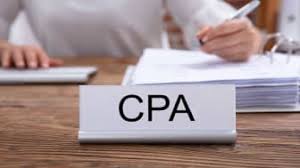Tips for Choosing a Tax Preparer
Following these tips will help you weed out the fly-by-night preparers and zero in on the best tax professionals in your area.
You’re really organized and on top of things this tax season. Good for you! You received all your W-2s and 1099s, you collected all your financial statements and receipts, and now it’s time to find someone to prepare your tax return. But there’s one problem…you’re not quite sure how to go about choosing a tax preparer.
It goes without saying that you want someone who’s qualified. But how do you know? You want someone who’s honest and reliable, too. But, again, how do you know? The last thing you want to do is search online for “tax preparers near me” and randomly pick a preparer from the list, but sometimes it feels like there’s no better way.
Relax. There is a better way. Follow these tips for picking a tax preparer to help you weed out the fly-by-night preparers and zero in on the best tax professionals in your area. With a little bit of time and a few targeted questions, you can find a competent and dependable preparer to complete and file your return.
Verify the Preparer’s Credentials
There are a lot of people out there claiming to be a “tax professional.” However, just because someone hangs out a shingle and advertises tax prep services, it doesn’t mean they actually have the skill, education, and expertise to handle your return.
To increase the odds of finding a qualified tax preparer, look for someone who is credentialed. You’re much more likely to get a competent preparer if they’ve been vetted by the IRS or a state regulatory board. The most common types of credentialed preparers are certified public accountants (CPAs), enrolled agents, attorneys, and annual filing season program participants.
CPAs are licensed by state boards of accountancy, studied accounting at a college or university, and have passed a rigorous exam. They must also satisfy ethical requirements and take continuing education classes to keep their license.
Enrolled agents are licensed by the IRS. They must pass a comprehensive exam, which requires them to demonstrate proficiency in federal tax return preparation, and complete 72 hours of continuing education classes every three years.
Attorneys are licensed and regulated by state courts and/or state bar associations. They graduated from law school and passed a bar exam. In addition, attorneys must also take continuing education classes and satisfy professional ethics requirements.
The IRS also runs a voluntary program that recognizes the efforts of return preparers who are not CPAs, enrolled agents, or attorneys. It will issue an Annual Filing Season Program Record of Completion to tax return preparers who obtain a certain number of continuing education hours for a specific tax year.

Ask about their service fees.
Avoid preparers who base their fee on a percentage of your refund or those who claim they can obtain larger refunds than other preparers. Also, always make sure any refund due is sent to you or deposited into an account in your name. Under no circumstances should all or part of your refund be directly deposited into a preparer’s bank account.
Ask if they offer electronic filing.
Any paid preparer who prepares and files more than 10 returns for clients must file the returns electronically, unless the client opts to file a paper return. More than 1 billion individual tax returns have been safely and securely processed since the debut of electronic filing in 1990. Make sure your preparer offers IRS e-file.
Make sure the tax preparer is accessible.
Make sure you will be able to contact the tax preparer after the return has been filed, even after the April due date, in case questions arise.

Interview tax preparers
Make sure a tax preparer has an active preparer tax identification number (PTIN) through the IRS and check whether the person meets state requirements. Then interview the tax preparer thoroughly. Ask about fees, availability and what kinds of records the tax preparer will need.
Most tax preparers are legitimate and competent, but keep in mind that without a national license requirement, they may be working off of their own personal research and experience. Because of this, it is important you conduct a thorough interview with the tax preparer before you hire them.
Get trusted referrals
One of the best ways to find a tax preparer you trust is by asking friends and family for recommendations. That doesn’t mean you should hire your tax preparer sister-in-law just because she’s family, though. Before hiring any tax preparer, perform a BBB search for details on consumer reviews or complaints.

Review the entire return before signing.
Before you sign your tax return, review it and ask questions. Make sure you understand everything and are comfortable with the accuracy of the return before you sign it.
Make sure the preparer signs and includes their PTIN.
A paid preparer must sign the return and include their PTIN as required by law. The preparer must also give you a copy of the return.
Never sign a blank return.
Avoid a tax preparer that asks you to sign a blank tax form. Although this may seem convenient to help you file your return quicker, this is improper. A blank signed return sometimes also is a method which unscrupulous preparers use to cheat taxpayers by entering bogus expenses that create fraudulent refunds, refunds which the unscrupulous preparers then later misappropriate to themselves. Although such tax return-related scams by fraudulent preparers are relatively uncommon, they do occur, and taxpayers have a duty to guard themselves from falling victim to such schemes.
As one additional tip, be careful of offers from tax preparer firms to advance you money against an expected refund so that you can get your money faster. The fees associated with these loans or advances often are very high (even compared to regular credit card interest rates), and thus are not worth the small burden of waiting several additional weeks to receive the full refund. If you are concerned about getting a refund sooner, avoid the late rush and file as early as possible in the tax filing season, and consider using a tax preparer that uses E-file to expedite the filing of the return and the processing of your refund.